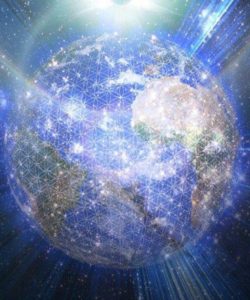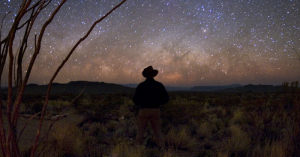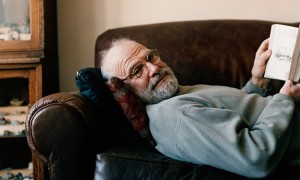Oliver Sacks
Oliver.
March 6, 2017‘In the country, far from the lights of the city, I saw the entire sky “powdered with stars” (Milton).
It was this celestial splendor that suddenly made me realize how little time, how little life, I had left.
My sense of the heavens’ beauty, of eternity, was inseparably mixed for me with a sense of transience – and death.’
Gratitude [2015]
The graceful and transient words of Oliver Sacks, writing in the months prior to his transition.
Oliver. Starstuff.
October 1, 2015☆☆¸.•*¨*•☆☆•*¨*•.¸¸☆☆
http://darksky.org/solace-in-the-stars/
By Peter Tyson, Editor in Chief of Sky & Telescope
Oliver Sacks, the neurologist and author, wrote recently of seeing the night sky “powered with stars” (in Milton’s phrase) while spending a night in the countryside. Witnessing this dark-sky grandeur made Sacks, who this year has been chronicling his battle with terminal cancer, realize how little time he had left. “My sense of the heavens’ beauty, of eternity, was inseparably mixed for me with a sense of transience – and death,” he wrote in the July 26th New York Times.
Did this awareness cause him to despair? Just the opposite. Sacks told friends he would like to see such a sky again when he is dying. He noted that, since he first publicly discussed his condition in the February 19th Times, the hundreds of letters he has received expressing appreciation for his life and work have brought him comfort. “I remain very glad and grateful for all this – yet none of it hits me as did that night full of stars,” he wrote.
Why, as he stands on the brink of the beyond, does Sacks find solace gazing at the vault of heaven? Sacks recounts how he has long coped with bereavement by turning to the nonhuman. The chemical elements – “little emblems of eternity,” he dubs them – are one such source of succor. For his 81st birthday last year, friends gave him a small box containing thallium, element 81.
To me, Sacks’ reaction that night in the countryside makes perfect sense. All those elements that he treasures, that comprise his body and each of ours, originated out there amongst the stars. We talk of Mother Earth, but Mother Supernova might be more apt. From the human perspective, the firmament, like the elements, is constant, whereas everything here on our planet – save the elements it consists of – is ephemeral, as Sacks understood that summer evening.
And what is so universally inspiring as a night sky powered with stars? Sacks is not an astronomer, nor even a physical scientist. Yet he, like most of us no matter our field of interest, nor our age, background, or beliefs, is struck dumb by their resplendence and mystique.
I for one am grateful to Sacks for so graciously and sensitively sharing his observations in this last stage of his life. Each of us will reach that moment when we, too, are staring at eternity. Sacks’ words offer their own consolation that death is not something to be feared, in part because it couldn’t be more natural: our elements returning to the cosmos from which they sprung.
Postscript: Oliver Sacks died on August 30th, as this issue went to press. May he rest in peace amongst the stars.
Oliver.
September 4, 2015From August 30th, 2015:
‘Today, Oliver Sacks died, the great neurologist, author and wise man. I was so moved to read what he wrote upon learning his life was coming to an end:’
“Over the last few days, I have been able to see my life as from a great altitude, as a sort of landscape, and with a deepening sense of the connection of all its parts. This does not mean I am finished with life.
On the contrary, I feel intensely alive, and I want and hope in the time that remains to deepen my friendships, to say farewell to those I love, to write more, to travel if I have the strength, to achieve new levels of understanding and insight. …
I feel a sudden clear focus and perspective. There is no time for anything inessential. I must focus on myself, my work and my friends. I shall no longer look at “NewsHour” every night. I shall no longer pay any attention to politics or arguments about global warming.
This is not indifference but detachment — I still care deeply about the Middle East, about global warming, about growing inequality, but these are no longer my business; they belong to the future. I rejoice when I meet gifted young people — even the one who biopsied and diagnosed my metastases. I feel the future is in good hands.
I have been increasingly conscious, for the last 10 years or so, of deaths among my contemporaries. My generation is on the way out, and each death I have felt as an abruption, a tearing away of part of myself. There will be no one like us when we are gone, but then there is no one like anyone else, ever. When people die, they cannot be replaced. They leave holes that cannot be filled, for it is the fate — the genetic and neural fate — of every human being to be a unique individual, to find his own path, to live his own life, to die his own death.
I cannot pretend I am without fear. But my predominant feeling is one of gratitude. I have loved and been loved; I have been given much and I have given something in return; I have read and traveled and thought and written. I have had an intercourse with the world, the special intercourse of writers and readers.
Above all, I have been a sentient being, a thinking animal, on this beautiful planet, and that in itself has been an enormous privilege and adventure.”


